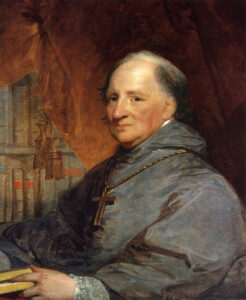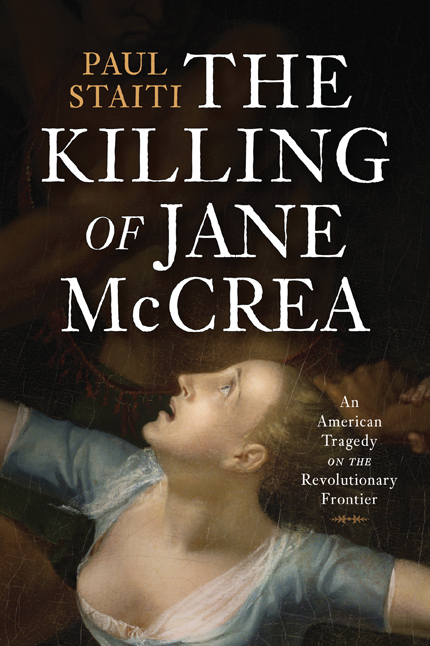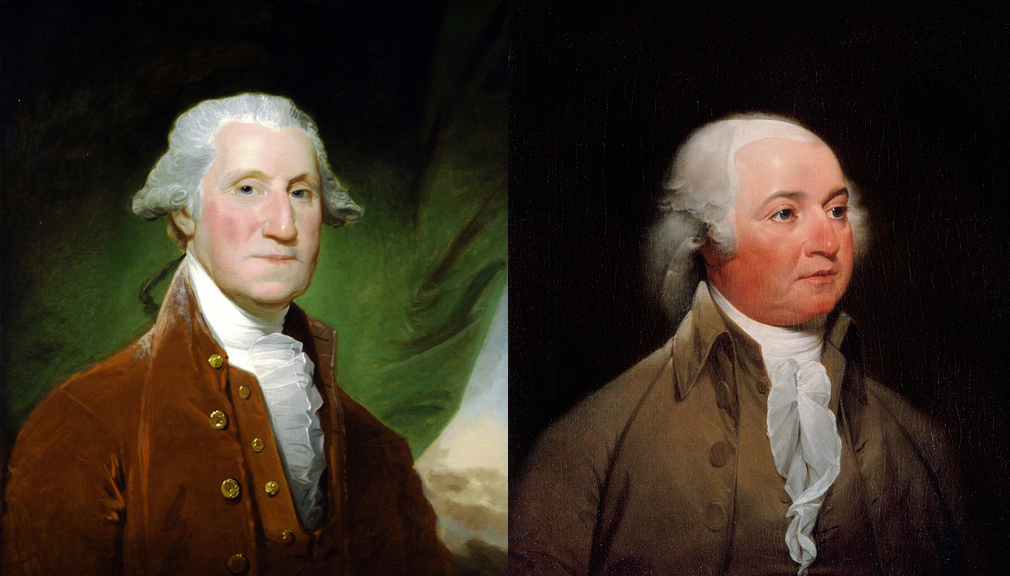In December 1775, Pope Pius VI released his famed encyclical entitled Inscrutabilie Divinae Sapientiae. Translated as “The Inscrutable Divine Wisdom,” the Pope used his platform to issue a commentary on the most pressing issues of the time. Among the many topics he touched on were threats to the Catholic Church, the shifting politics of Europe, and the Holy See’s own interpretations of liberty and self-government.
As Pontiff, Pius’s tenure was only ten months old at the time that he released Inscrutabilie Divinae Sapientiae, but he was already making bold pronouncements regarding the waves of revolutionary fervor that were sweeping across the greater Atlantic World. Long before he became the “Successor to St. Peter,” Pius VI was born into an aristocratic family in Cesena in northwestern Italy. Though he committed his life to the Church, he was raised in the splendor of nobility and was a staunch believer in the social order that wealth and status provided.
The years preceding his time as the Holy Father saw revolutions sweep across the continent; some were still mere ideological debates, while bloody peasant uprisings occurred in Eastern Europe and Russia. In America, the battles of Lexington, Concord, and Bunker Hill challenged royal authority in Massachusetts, and the Siege of Ninety Six destabilized the South Carolina backcountry.
While the Enlightenment Era opened a new dialogue regarding the virtues of Republican government, the Catholic Church presented itself as an alternative voice in the larger quest for order that gripped the western world. In a Papacy that would last twenty-four years, Pius VI presented himself as a steady hand in the name of the Ancien Régime. To the ruling class of the Papal States, the works of John Locke, Jean-Jacques Rousseau, and Voltaire were the ideological equivalent of a gauntlet dropped against the existing order of Europe.
In the sixth article of Inscrutabilie Divinae Sapientiae, Pius decried these new liberal philosophers, stating,
those deceitful sages soften and conceal the wickedness of their doctrine with seductive words and statements; in this way, they attract and wretchedly ensnare many of the weak into rejecting their faith or allowing it to be greatly shaken. While they pursue a remarkable knowledge, they open their eyes to behold a false light which is worse than the very darkness.[1]
To Pope Pius, the emerging revolutionary crisis could be traced directly back to these early thinkers, and the outbreaks of anti-royal resistance to their radical ideas. As an institution, the Catholic Church shared many of its fundamental levers of control with the great monarchies of Europe, and as a result a threat against one was essentially a mutual danger to the other. Even though the continent was badly divided between Catholic and Protestant superpowers, the toppling of one monarchy could lead to the felling of many others if left unchecked. “When they have spread this darkness abroad and torn religion out of men’s hearts,” Pius announced, “these accursed philosophers proceed to destroy the bonds of union among men, both those which unite them to their rulers, and those which urge them to their duty.”[2]
Much as was the case in the modern era, eighteenth century Rome expressed grave concerns that the Catholic Church was losing its grip on the moral sovereignty of the Atlantic World. In the view of the Pontiff, terms like “liberty” and “freedom” were tied directly to the qualities of salvation and everlasting life, not the worldly realm of government and politics. The American Revolution represented a looming crisis to the Pope, for its success was understood as a degradation of freedom, not an achievement.
“They keep proclaiming that man is born free and subject to no one,” Pius declared, adding,
that society accordingly is a crowd of foolish men who stupidly yield to priests who deceive them and to kings who oppress them, so that the harmony of priest and ruler is only a monstrous conspiracy against the innate liberty of man. . . . Everyone must understand that such ravings and others like them, concealed in many deceitful guises, cause greater ruin to public calm the longer their impious originators are unrestrained.[3]
Despite his most earnest efforts, Pope Pius VI could not deter “the pestilent disease which the wickedness of our times brings forth.” Within a year of his encyclical, Thomas Paine published Common Sense, and Thomas Jefferson penned the Declaration of Independence. Though these publications are considered landmark contributions to the formation of an American identity in the early years of the Revolution, they were, in some respects, Rome’s worst fears manifested.[4]
Despite his reservations surrounding the successful establishment of a separatist republic in America, Pope Pius VI ultimately accepted the United States into the larger Catholic worldview. In 1784, he authorized the release of American clergymen from the institutional umbrella of English Diocesan control and established the Prefecture of Baltimore that same year. Since Maryland was founded as a Catholic colony, Baltimore was a natural choice to grant Rome a foothold in the nascent republic.

By 1789, the Baltimore Prefecture flourished, and Pius fully elevated it to Diocesan status. Under the watchful eye of Bishop John Carroll, the Catholic Church in America was firmly established and allowed for future growth as more traditionally Catholic settlers immigrated in the decades to come.
In 1793, Pius VI once again railed against the ideologies of republican virtue, but this time in the face of the French Revolution. Although his comments were made long after the conclusion of the America’s founding, they echo his sentiments and show that his true feelings had not changed:
To this false and mendacious name of liberty, those vaunted patrons of the human race have added the equally deceptive name of equality, as if among human beings who have come together in civil society, although they are subject to various emotions and follow diverse and uncertain impulses according to their individual whims, there ought not be one who by means of authority and force might prevail upon, oblige, moderate, and recall them from their perverse ways of acting to a sense of duty, lest society itself, from the reckless and contrary impetus of many desires, should fall into anarchy and be utterly dissolved.[5]
Despite the arguments set forth in Inscrutabilie Divinae Sapientiae, rebellion still found its way to the Chair of St. Peter. In the wake of the French Revolution, Pope Pius VI was arrested by the forces of Napoleon Bonaparte in February 1798. He died in captivity in August 1799; at the time the only Pontiff with a longer reign was St. Peter himself.
[1] Inscrutabilie Divinae Sapientiae, www.papalencyclicals.net/pius06/p6inscru.htm.
[2] Ibid.
[3] Ibid.
[4] Ibid.
[5] Plinio Corrêa de Oliveira and Pope Pius XII, “Secret Consistory of June 17, 1793,” Nobility and Analogous Traditional Elites in the Allocutions of Pius XII: A Theme Illuminating American Social History (University of Michigan, 1993), 383.









One thought on “Those Deceitful Sages: Pope Pius VI, Rome, and the American Revolution”
Fascinating stuff. We don’t always approach the American Revolution in its wider context, whether the intellectual tenor of the times or the larger Atlantic world.